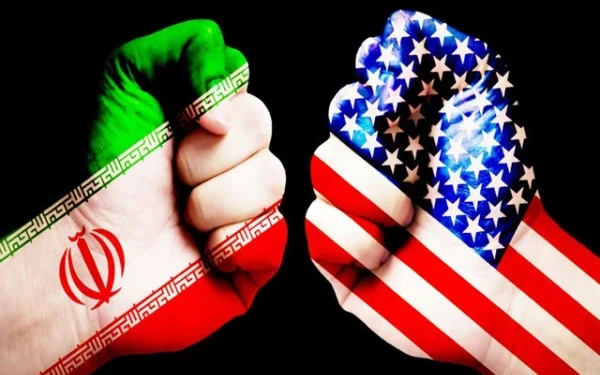Tehran: Diplomatic Developments in Nuclear Talks
Iran has officially responded to a letter from former U.S. President Donald Trump concerning negotiations over the nuclear deal. The response, delivered through diplomatic channels, highlights Iran’s stance on the ongoing discussion regarding the future of its nuclear program and international agreements.
Iran’s Official Response and Position
Iranian Foreign Minister Abbas Araqchi confirmed that Tehran has formally addressed Trump’s letter. The Iranian government has outlined its perspective on the nuclear negotiations, emphasizing that Iran remains committed to its national interests while seeking a constructive resolution.
Araqchi stated that the letter was conveyed to the United States via Oman, which has been serving as a mediator between the two nations. Oman has historically played a crucial role in facilitating indirect communication between Tehran and Washington, particularly during sensitive diplomatic discussions.
The Iranian foreign minister reiterated that Iran is open to indirect talks with the U.S., similar to previous engagements that have taken place through intermediaries.
Background of Trump’s Letter and U.S. Intentions
The letter from former President Donald Trump, dated March 12, reportedly urged Iran to consider entering negotiations for a new nuclear deal. Trump’s administration had been a vocal critic of the Joint Comprehensive Plan of Action (JCPOA), commonly known as the Iran nuclear deal, which was initially brokered in 2015 under President Barack Obama.
In 2018, Trump unilaterally withdrew the U.S. from the JCPOA, citing concerns that the agreement did not go far enough in limiting Iran’s nuclear capabilities. Following the withdrawal, the U.S. imposed harsh economic sanctions on Iran, leading to heightened tensions between the two countries.
The letter also included a two-month deadline for Iran to engage in discussions regarding a revised deal. The specifics of the proposed new agreement remain unclear, but analysts believe it aimed to impose stricter restrictions on Iran’s nuclear activities and address concerns related to missile programs and regional influence.
Iran’s Stance on Nuclear Negotiations
In its response, Iran has made it clear that any negotiations must respect its sovereignty and national interests. Tehran has long maintained that its nuclear program is for peaceful purposes and has accused the U.S. of violating international agreements by withdrawing from the JCPOA.
Iran has also called for the lifting of economic sanctions as a precondition for any new talks. The sanctions have had a significant impact on the Iranian economy, leading to a devaluation of the national currency, increased inflation, and economic hardships for the Iranian people.
Foreign Minister Araqchi stressed that Iran is not against dialogue but will not accept unilateral pressure or conditions imposed by the U.S. He also noted that Iran continues to engage with European signatories of the JCPOA, including the United Kingdom, France, and Germany, to ensure that the agreement remains in place despite U.S. withdrawal.
Role of Oman as a Mediator
Oman has played an essential role in diplomatic negotiations between Iran and the U.S. in the past. The Gulf nation has often acted as a neutral intermediary, facilitating back-channel communications to prevent further escalation of tensions.
According to diplomatic sources, Omani officials have been actively involved in relaying messages between Tehran and Washington, ensuring that both sides have a channel for indirect dialogue. The use of Oman as a mediator reflects the complex nature of U.S.-Iran relations, where direct diplomatic engagement remains challenging due to decades of political animosity.
Potential Outcomes and Future Implications
The response from Iran suggests that while Tehran is willing to engage in discussions, it remains cautious about U.S. intentions. Some key potential developments that could arise from this exchange include:
- Renewed Diplomatic Talks: If both sides agree to indirect negotiations, it could lead to renewed diplomatic efforts to address concerns surrounding Iran’s nuclear program and regional influence.
- Continued Sanctions and Economic Pressures: If Iran refuses to comply with the U.S.’s conditions, Washington may continue or even escalate economic sanctions, further straining Iran’s economy.
- European Mediation Efforts: European powers that remain committed to the JCPOA may play a more active role in bridging the gap between the U.S. and Iran to prevent further deterioration of the situation.
- Regional and Global Reactions: The response from Iran will also influence regional allies and global stakeholders, particularly countries like Russia and China, which have expressed support for Iran in the past.
Conclusion: The Path Ahead for U.S.-Iran Relations
The exchange of letters marks another chapter in the complex relationship between Iran and the United States. While Iran has signaled a willingness to engage in indirect talks, the success of any negotiations will depend on mutual trust and assurances that both nations are committed to a fair and equitable resolution.
As diplomatic efforts continue, the international community will be closely watching how Iran and the U.S. navigate this delicate situation. Whether the discussions lead to a renewed agreement or further hostilities remains uncertain, but one thing is clear: the future of Iran’s nuclear program will remain a focal point of global geopolitics in the coming months.

























